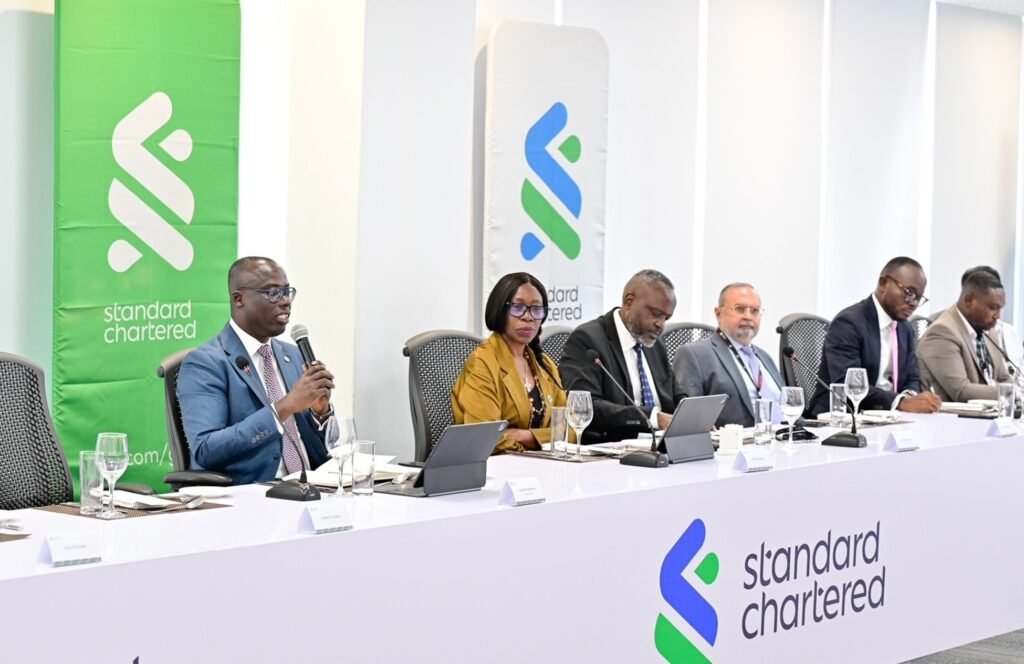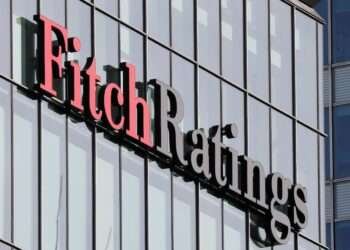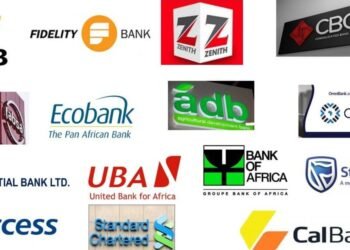Accra played host to a landmark event as Standard Chartered Bank convened a high-level Business and Economic Roundtable at its Ghana headquarters.
The gathering brought together senior government officials, private sector leaders, development partners, and top executives from Standard Chartered Group, all united under the theme: “Road to Transformation: Stability, Strategy & Sustainability.”
The roundtable was more than a ceremonial meeting. It became a platform for dialogue on Ghana’s economic outlook, structural reforms, and strategies to unlock the next wave of growth. The presence of global banking leaders underlined the scale of ambition—signaling that Ghana’s economic transformation remains firmly on the global radar.
Mansa Nettey, Chief Executive of Standard Chartered Ghana, set the tone by defining the bank’s unique role in Ghana’s economic story. She described Standard Chartered not just as a financial partner, but as a “super-connector”—bridging clients to opportunities, linking private enterprise to policy ambition, and leveraging its international reach to deliver impact at scale.
Her remarks resonated strongly at a time when businesses in Ghana are seeking both financing and strategic partnerships to thrive amid global uncertainty. “At Standard Chartered, we see ourselves as more than bankers—we are enablers of transformation,” she emphasized.
Global Voices, Local Priorities
The roundtable featured some of the bank’s most senior global executives, including Kariuki Ngari, Chief Executive of Standard Chartered Kenya and Africa; Caroline Ngigi, Global Head, Conduct and Financial Crime Risk, Transaction Banking and Africa; and Kirsten Wilkinson, Chief Risk Officer & Regional Chief Credit Officer for Africa and the Middle East.
Mr. Ngari highlighted the importance of aligning businesses with the direction of economic change. “This is the moment for businesses to act early. Those who position themselves now will capture the opportunities that lie ahead,” he said. His words struck a chord with Ghanaian private sector players eager to scale operations.

Spotlight on Ghana’s 24-Hour Economy
A significant focus of the discussions was the government’s 24-Hour Economy Policy, a bold initiative designed to increase productivity and job creation across sectors such as manufacturing, logistics, digital services, energy, and finance.
Arnold Parker, representing the 24-Hour Economy Secretariat, outlined how the model is expected to catalyze inclusive growth. The policy, which aims to keep Ghana’s economic engines running around the clock, was widely acknowledged as a potential game-changer if backed by infrastructure investment, financing, and clear implementation strategies.
Key insights also came from thought leaders and policy experts. Professor Godfred Bokpin, a respected economist, underscored the urgency of debt sustainability and structural reforms, noting that without these pillars, long-term transformation could stall.
Dr. Alhassan Iddrisu, Government Statistician, presented macroeconomic data pointing to recovery trends, while Dr. Adrian Alter, IMF Country Director for Ghana, provided a regional perspective, emphasizing Ghana’s progress under international support programs.
Lawyer and business practitioner, David Ofosu-Dorte, took a private sector lens, urging businesses to align more strategically with government initiatives to unlock scaling opportunities.
Across all discussions, participants converged on three critical enablers for Ghana’s transformation: long-term financing, infrastructure investment, and policy coherence. Private and public sector players alike emphasized that without early-stage investments and strong coordination, the opportunities of the 24-Hour Economy and broader transformation agenda may not fully materialize.
Standard Chartered executives reaffirmed the bank’s commitment to ensure that capital flows where it is most needed—supporting sectors that drive inclusive and sustainable growth.
Standard Chartered’s Commitment to Africa’s Growth Story
The roundtable formed part of Standard Chartered’s broader engagement with stakeholders across Africa, showcasing the bank’s dedication to fostering dialogue, shaping strategy, and enabling sustainable transformation.
As global banking leaders unite in Accra, with the right partnerships, bold policy execution, and financing, the country has the potential to lead Africa’s transformation agenda.
And Standard Chartered, positioning itself as both a financial partner and strategic connector, has made it clear—it intends to be at the heart of that journey.
READ ALSO: Banking Giants & Market Titans Fuel GSE’s Record-Breaking Bull Run





















